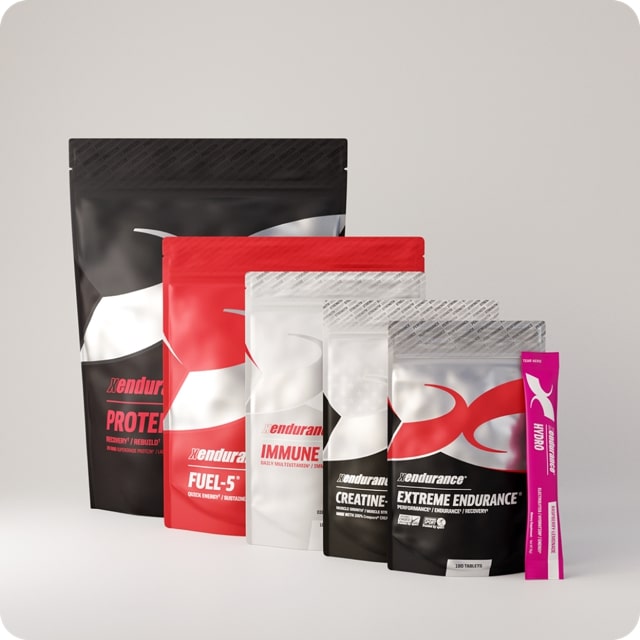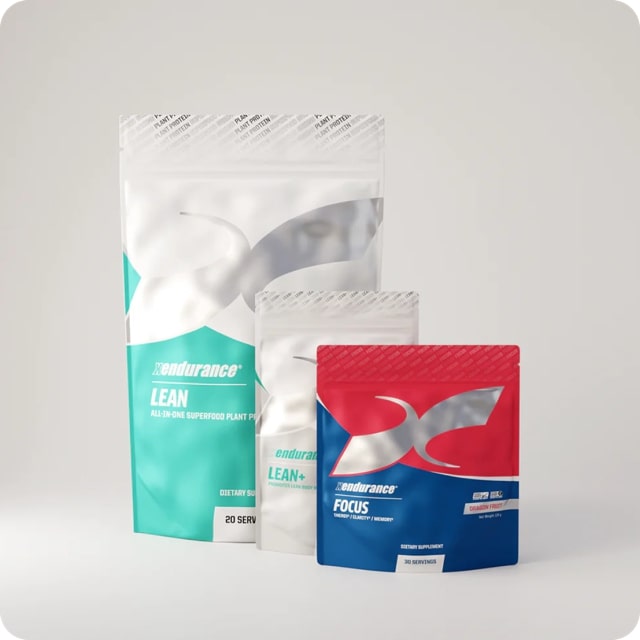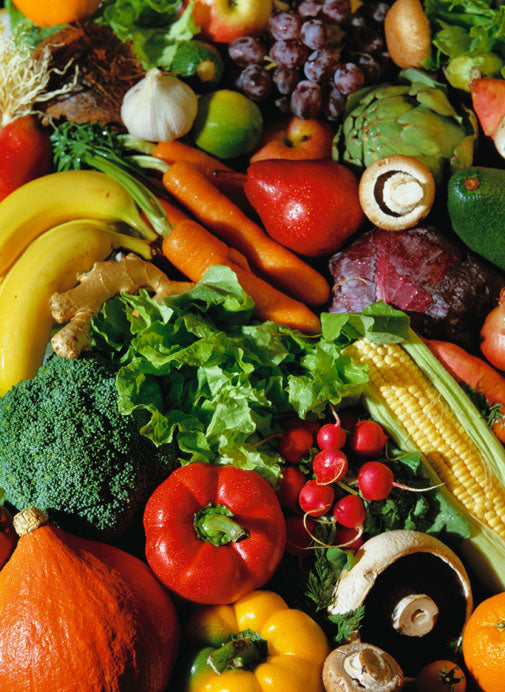
A 21st-century Western diet typically consists of red meats, poultry, processed foods, and refined sugars, which are highly acidic and can alter your pH levels. If you're highly acidic, you might be interested to know how to balance your body's pH.
One way is to follow an alkaline diet. By consuming foods that are high in alkaline, your body can neutralize excess acids and bring about acid-base equilibrium. A balanced pH ensures that your body can function optimally and lowers your risk of health problems.
To understand the importance of maintaining your pH balance, here’s what you need to know about alkaline vs non alkaline foods.
Non-Alkaline Diet: Why Is It Harmful to Your Health?
A non-alkaline diet is also known as an acidic diet. People typically consume high-acidity foods, including meat, fish, poultry, eggs, and grains. These non alkaline foods can have various negative effects on your health. Acidic foods, including meat, fish, poultry, eggs, and grains.
Acidic foods also include most processed foods such as:
- Bread and Cakes
- Cheese
- Potato Chips
- Condiments
- Soft Drinks
- Energy Drinks
- Coffee
- Alcohol
These foods are high in sulfur-containing amino acids, salt, and phosphoric acid, which contribute to the acidity in your body.
How Do Acidic Foods Affect Your Body’s pH?
The body needs to function optimally within the pH range of 7.35 to 7.45. If you have a predominantly acidic diet, your body needs to work harder to stay within the ideal range (slightly alkaline).
The kidneys and lungs are the ones responsible for maintaining your pH balance. However, when the body has a high acid load — potentially due to a non-alkaline diet — these organs become overworked and less effective.
As the kidney increasingly adapts to excrete acids from the body, its functioning might become impaired and increase the risk of kidney disease.
To compensate, calcium is taken from your bone stores. Calcium is an alkaline mineral, so the body uses it to neutralize excess acids and achieve acid-base equilibrium.
Due to this compensatory action, studies have associated high dietary acid load — or acidosis — with an increased risk for bone diseases.
Other Consequences of High Acid Loads
Acid Accumulation
Excess acid also accumulates within our cells and intracellular spaces, which makes it harder for enzymes to function properly. Due to these impairments, acidosis can increase your risk for cardiovascular, metabolic, inflammatory, and other chronic diseases.
Muscle Mass Loss
Studies have also found that a high acid load can increase the breakdown of proteins and inhibit protein synthesis, leading to muscle mass loss. Acidosis has also been associated with muscle anabolism, which is crucial for building and maintaining muscle mass.
Decreased Absorption
To maximize the efficacy of your medicines and health supplements, they must survive the stomach — which is already highly acidic with a pH of 1.5-3.5 — and reach the small intestine for optimal absorption.
Acidic foods lower your stomach's pH level even more, and this can cause medicines and supplements to break down or degrade before reaching your intestines.
This can significantly lower their bioavailability, so your body doesn't absorb as many vitamins, minerals, and other nutrients.
How to Balance Your Body’s pH with An Alkaline Diet
What Is An Alkaline Diet?
An alkaline diet mainly consists of fruits, vegetables, nuts, and legumes. Here are some examples:
- Lettuce
- Kale
- Broccoli
- Lemons
- Oranges
- Cashews
- Almonds
- Green Peas
- Chickpeas
- Red Beans
These foods help replenish alkaline stores so your body can effectively neutralize acids and maintain a healthy pH balance.
Benefits of an Alkaline Diet
An alkaline diet doesn’t just help balance your pH levels. Since you’re consuming healthy foods, this kind of diet comes with other health benefits.
- Weight Management – An alkaline diet can help you manage your weight. Since you're consuming less fat and calories, you can burn them off through physical activity, and there is less excess fat for the body to store.
- Reduced Risk of Diseases – A high acid load is associated with many diseases. Sticking to an alkaline diet can keep your body healthy and less susceptible to environmental toxins that can lead to health problems.
- Enhanced Well-Being – A highly acidic diet can cause fatigue, gastrointestinal discomfort, heartburn, bloating, and other symptoms. Switching to an alkaline diet can neutralize excess acids in your body and reduce such symptoms.
Should You Stop Eating Acidic Foods?
The goal is not to completely stop eating acidic foods. If your body is too alkaline, it also cannot function optimally. That's why a balanced diet is still essential.
Acidic foods are also important. But instead of mainly consuming processed foods and animal-based protein, you can switch to plant-based protein sources.
Whole grains, eggs, and oats are also part of a healthy diet. Make sure to include plenty of fruits and vegetables to have balanced meals.
Frequently Asked Questions
What Does An Alkaline Diet Do?
If you have an acidic or non-alkaline diet, your body cannot function as intended. To operate at an optimum level, your body overcompensates, which could lead to health problems. Switching to an alkaline diet helps restore your body's pH balance so that it can function optimally and keep you healthy in the long run.
How Do I Alkalize My Body Fast?
The best way to alkalize your body naturally is to adopt a healthy diet full of fruits, vegetables, and plant-based proteins. You should also avoid processed foods and caffeinated drinks. Instead, make sure to drink at least 8 glasses of water every day.
To boost overall health, you may also want to take supplements to give your body the vitamins and minerals it needs to function optimally.
Does Drinking Apple Cider Vinegar Alkalize The Body?
Apple cider vinegar is more alkaline than pure vinegar, but it is still acidic with a pH level of 2-3. However, when consumed, organic apple cider vinegar has an alkalizing effect on the body, similar to citrus fruits like oranges and lemons.
If you want to alkalize your body, it’s still better to consume fruits, vegetables, nuts, and legumes as they are more alkaline than apple cider vinegar.
How Do You Know If Your Body Is Too Acidic?
Some of the symptoms of a highly acidic body include fatigue, headaches, difficulty breathing, muscle cramps, toothaches, gum aches, heartburn, gastrointestinal discomfort, bad breath, and chest pain.
If you suspect that you may be acidic, consider an alkaline diet to balance your pH levels.
How Do You Flush Acid Out Of Your Body?
First, try to cut out high-acid foods and switch to a more balanced, alkaline-based diet. Water is neutral, so keeping hydrated can also dilute the acid in your body. You can add some lemon juice or apple cider vinegar to a glass of water, as they can have an alkalizing effect on your body.
How to Balance Your Body’s pH? A Balanced Diet Is Key
Sticking to a purely alkaline diet is not feasible for many. One important thing to note is that acidic foods are not bad — as long as they are consumed in moderation and alongside alkaline foods.
A balanced diet is still the best course of action for optimal health. Fruits, vegetables, nuts, and legumes help replenish your body's alkaline stores. This way, when you consume acidic foods, the body can adequately neutralize excess acids without taking away from bone reserves.
Enzymes can also carry out essential tasks such as aiding in proper digestion and absorption and facilitating muscle growth and repair.
When pH levels are balanced, the body can function as intended. This lowers your risk of developing chronic and debilitating health problems that can decrease your quality of life.
So, when it comes to the alkaline vs non-alkaline debate, we believe that a balanced diet is the best solution.










Leave a comment
This site is protected by hCaptcha and the hCaptcha Privacy Policy and Terms of Service apply.